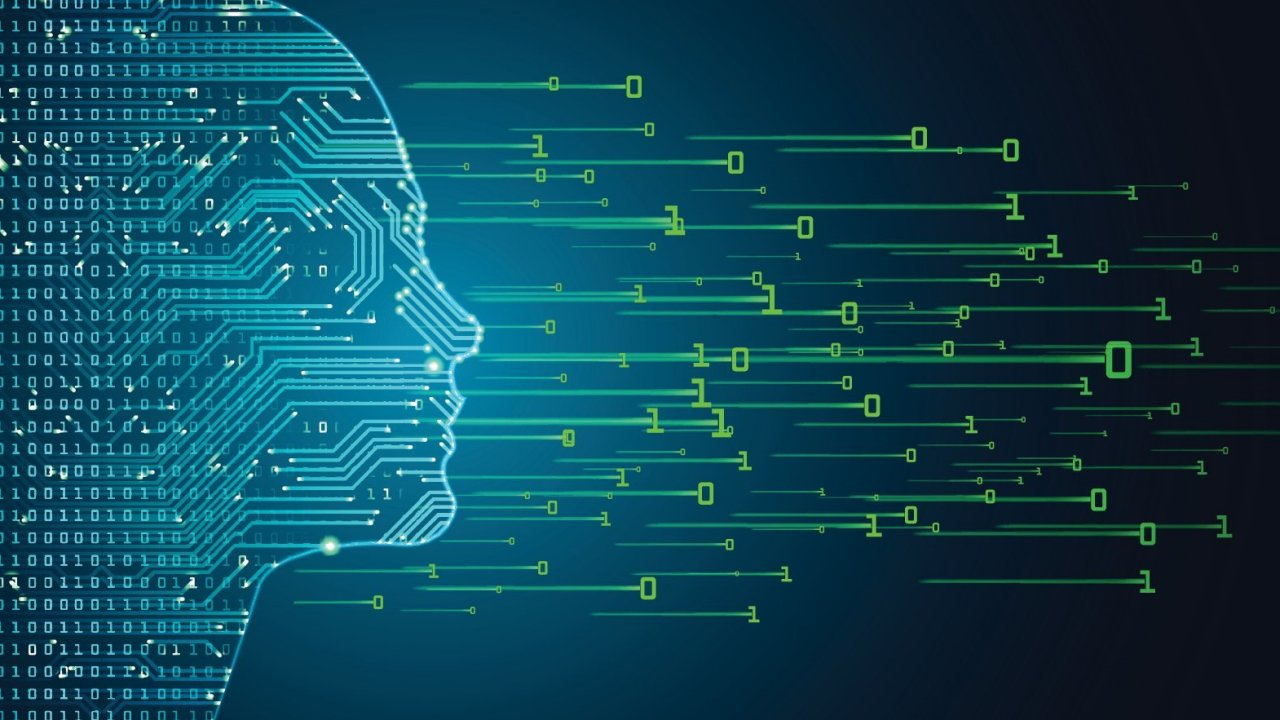Is mathematics important for computer science? This question is raised by many students who want to pursue a career in computer science, and the simple answer is yes.
Mathematics forms the foundational framework of computer science, interweaving its principles and concepts into the very essence of the discipline. From algorithmic design to the analysis of complex data structures, mathematical reasoning provides the essential tools for computer scientists to solve intricate problems efficiently and precisely. This symbiotic relationship between mathematics and computer science has shaped the evolution of modern computing. It has also opened avenues for groundbreaking innovations in fields as diverse as artificial intelligence, cryptography, and computational biology.
In this exploration, we explain the use of maths in computer science, uncovering the deep-seated connections that empower the creation and advancement of computational technologies.

Does Computer Science Require Math in India?

So, does computer science require math in India? In India, as in many other countries, a robust foundation in mathematics is considered a cornerstone for success in computer science. This symbiotic relationship between mathematics and computer science is deeply ingrained in the curriculum and professional practice. Here's a detailed explanation of why math is crucial for computer science in India:
Algorithm Design and Analysis
Mathematics provides the formal language and tools to describe, analyse, and optimise algorithms. This is critical for developing efficient and effective solutions to computational problems. Techniques from discrete mathematics, combinatorics, and graph theory are particularly important for algorithm design.
Data Structures
Understanding mathematical concepts aids in the manipulation and organisation of data in efficient ways. For instance, knowledge of set theory and abstract data types is crucial in designing and implementing data structures.
Complexity Theory
Mathematical reasoning is central to understanding the complexity of algorithms and computational problems. This includes concepts like Big-O notation, which quantifies the efficiency of algorithms.
Numerical Methods
In various applications, especially in scientific computing and simulations, mathematical techniques are used to solve problems approximately, often requiring an understanding of calculus, linear algebra, and differential equations.
Machine Learning and Artificial Intelligence:
Mathematical concepts underpin many algorithms and models in these fields. Linear algebra, calculus, and probability theory are particularly vital.
Cryptography and Security
Strong mathematical foundations are crucial for designing and analysing cryptographic algorithms. Number theory, abstract algebra, and probability theory play pivotal roles here.
Computer Graphics
Trigonometry, linear algebra, and geometry are used extensively in computer graphics for tasks like rendering, transformations, and modelling.
Networking and Distributed Systems
Concepts like graph theory are used in understanding and optimising network structures. Probability theory can be vital in analysing network protocols.
Quantum Computing (emerging field)
Quantum computing, a rapidly developing field, relies heavily on advanced mathematical concepts, including linear algebra and abstract algebra.
Research and Innovation
For those pursuing advanced studies and research in computer science, mathematics is an indispensable tool for developing new algorithms, models, and theories.
In India, educational institutions emphasise the integration of mathematics and computer science from the very beginning of the curriculum. Courses typically include a significant portion of mathematics, and this continues in specialised areas of computer science.
Moreover, many competitive exams and entrance tests for higher education in computer science, such as the Graduate Aptitude Test in Engineering (GATE) or various competitive programming contests, place a strong emphasis on mathematical aptitude.
What is the Application of Maths in Computer Science?

The mathematics syllabus for computer science typically covers a range of fundamental topics that provide the necessary mathematical foundation for understanding and solving problems in various areas of maths in computer science. Below is a detailed breakdown:
1. Calculus
Calculus serves as the mathematical study of continuous change and motion. It is divided into several key areas:
- Differential Calculus involves the understanding of limits, which form the foundation for the rest of calculus. Topics include continuity, rates of change, and derivatives. Derivatives are of particular importance in computer science for tasks like optimisation, where finding the rate of change of a function is crucial.
- Integral Calculus focuses on integration, which is essentially the reverse process of differentiation. It encompasses techniques for calculating definite and indefinite integrals. Applications of integration are diverse, ranging from finding areas under curves to solving problems involving accumulation.
- Multivariable Calculus (if included in the syllabus) extends these concepts to functions of multiple variables. This is pertinent in computer science, where functions often depend on more than one parameter. Understanding derivatives and integrals in multiple dimensions is vital for fields like computer graphics and scientific simulations.
2. Linear Algebra
Linear algebra deals with vector spaces, which generalise the concepts of lines and planes to higher dimensions. It includes:
- Vector Spaces and Subspaces: These are sets of vectors that satisfy specific properties. They provide the mathematical structure for operations like addition and scalar multiplication.
- Linear Transformations and Matrices: Linear transformations describe how vectors change under certain operations. Matrices serve as the mathematical tool to represent and work with these transformations.
- Eigenvalues and Eigenvectors: These concepts are fundamental in various applications, including solving systems of linear differential equations and understanding the behaviour of dynamic systems.
3. Discrete Mathematics
Discrete mathematics focuses on structures and objects that are fundamentally distinct and separate. Key areas include:
- Set Theory: This provides the foundation for all of mathematics and involves the study of sets, which are collections of objects.
- Logic: Logic is pivotal in computer science for algorithm design and analysis. It includes propositional logic (dealing with statements and their truth values) and predicate logic (which involves quantified statements).
- Combinatorics: This area deals with counting, arrangements, and combinations of objects. It is widely used in algorithms, cryptography, and data structures.
- Graph Theory: Graphs are mathematical structures used to model pairwise relations between objects. They find extensive applications in networks, routing algorithms, and optimisation problems.
4. Probability and Statistics
Probability theory focuses on modelling uncertainty and making predictions based on data. Statistics involves the analysis and interpretation of data. These concepts are crucial for machine learning, data analysis, and artificial intelligence.
5. Numerical Methods
Numerical methods are computational techniques used to approximate solutions to mathematical problems that may not have exact solutions. This includes techniques like root-finding methods, interpolation, numerical integration, and solving systems of linear equations.
6. Optimisation
Optimisation deals with finding the best solution to a problem from a set of possible solutions. In computer science, this is used in areas such as machine learning, where models are trained to minimise a loss function.
This detailed syllabus equips students with the mathematical tools and techniques necessary for solving a wide range of problems in computer science. It forms the basis for algorithm design, data analysis, modelling, simulation, and many other critical aspects of the discipline.
To strengthen these fundamentals early on, you can join a maths class 10 and build a solid foundation for future studies in computer science.
How to Improve Maths for Computer Science?

Improving your mathematical skills in computer science involves a combination of practice, understanding, and application. Here are some strategies to help you enhance your math proficiency in the context of computer science:
- Master the Fundamentals: Ensure you have a solid understanding of basic mathematical concepts such as algebra, trigonometry, and geometry. These form the foundation for more advanced topics.
- Practice Regularly: Consistent practice is crucial. Work through problems, exercises, and sample questions to reinforce your understanding.
- Understand the Relevance: Relate mathematical concepts to their applications in computer science. For example, understand how calculus is used in algorithms and data analysis.
- Study with Purpose: Identify specific areas of math that are most relevant to computer science (e.g., calculus, linear algebra, discrete math) and allocate more time to those subjects.
- Use Online Resources: Take advantage of educational websites, online tutorials, and platforms that offer math courses and exercises tailored for computer science students.
- Take Formal Courses: Consider enrolling in formal courses, whether through a university, online platform, or community college. These structured courses provide a comprehensive and guided approach to learning math.
- Engage in Practical Applications: Implement math in programming projects. Solving real-world problems using mathematical concepts will reinforce your understanding and demonstrate their practical use.
- Seek Help When Needed: Don't hesitate to ask for help from teachers, professors, peers, or online communities. Sometimes, a different perspective or explanation can make a concept click.
- Work on Problem-Solving Skills: Computer science often involves complex problem-solving. Practice breaking down problems into smaller, manageable parts, and use math to address each component.
- Read Textbooks and Articles: Supplement your learning with textbooks and articles that explain mathematical concepts in the context of computer science.
- Participate in Coding Challenges and Competitions: Platforms like LeetCode, HackerRank, and Codeforces often have challenges that require strong mathematical skills. These can be a fun way to apply your math knowledge.
- Stay Persistent and Patient: Math can be challenging, but consistent effort and a patient approach will lead to improvement over time.
Can I Learn Maths and Computer Science Online?

There are numerous resources available on the internet that can help you acquire knowledge and skills in these fields. Here are some ways to do so:
- Online Courses and Tutorials: Platforms like Coursera, edX, Udemy, Khan Academy, and Codecademy offer a wide range of courses in mathematics and computer science. These courses often include video lectures, assignments, and quizzes.
- Private tutors: You can learn coding and other fields of computer science with the help of a private tutor. You can find highly qualified tutors on Superprof.
- University and College Programs: Many universities and colleges offer online degree programs in mathematics and computer science. These programs allow you to earn a formal education remotely.
- YouTube and Educational Channels: YouTube hosts a wealth of educational content. Channels like Khan Academy, MIT OpenCourseWare, and 3Blue1Brown provide high-quality lessons on various mathematical and computer science topics.
- Online Forums and Communities: Platforms like Stack Overflow, Reddit (e.g., r/learnprogramming, r/math), and various programming forums allow you to ask questions, seek advice, and engage with a community of learners and professionals.
- E-books and Digital Textbooks: Websites like Project Gutenberg and OpenStax offer free access to a wide range of textbooks, including those on mathematics and computer science.
- Coding and Problem-Solving Platforms: Sites like LeetCode, HackerRank, and Codewars provide coding challenges and exercises that can help you improve your programming skills.
- Math and CS Blogs: Many educators and professionals maintain blogs where they share tutorials, insights, and resources related to mathematics and computer science.
- Online Coding Bootcamps: Coding boot camps like General Assembly, Flatiron School, and Udacity offer intensive, immersive programs in web development and data science that you can complete online.
- Webinars and Live Workshops: Various platforms and organisations host live events and webinars on specific topics in mathematics and computer science.
- Interactive Simulations and Tools: Websites like Desmos (for mathematics) and CodePen (for web development) provide interactive platforms where you can experiment with concepts.
- Social Media Groups and Channels: Joining relevant groups on platforms like Facebook, LinkedIn, and Discord can provide you with access to discussions, resources, and networking opportunities.
The dynamic synergy between mathematics and computer science forms the bedrock of innovation and problem-solving in our increasingly digital world.
From algorithmic intricacies to the elegant application of mathematical principles in coding, this symbiotic relationship shapes the technological landscape.
Thus, with dedication and a thirst for knowledge, one can embark on a transformative journey of learning, opening doors to a myriad of opportunities in the realms of technology, innovation, and beyond.
Summarise with AI:
















